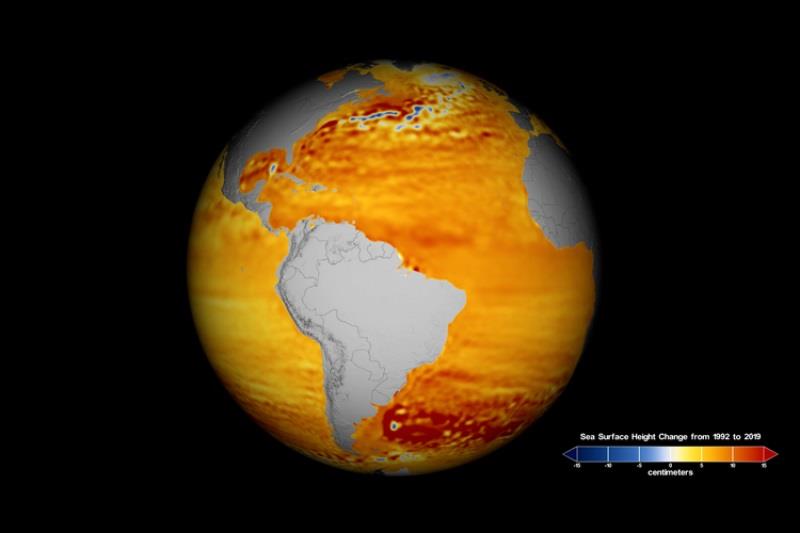
Adapting to the future: two NOAA scientists discuss new global report on climate change
by NOAA Fisheries 1 May 2022 00:19 UTC

Graphic of globe showing sea surface height change from 1992 to 2019 © NASA
Climate change is getting worse, it's happening everywhere, and it requires immediate action. These are just a few of the takeaways of a recent report by the Intergovernmental Panel on Climate Change.
The IPCC is the United Nations body that assesses the science related to climate change and presents actionable information for the world's decision makers. Hundreds of expert scientists from around the world helped compile this report, including NOAA authors Dr. Kirstin Holsman and Dr. Libby Jewett.
In this episode of Dive In with NOAA Fisheries, John Sheehan talks with Dr. Kirstin Holsman and Dr. Libby Jewett. They share insights on some of the very real challenges of climate change, as well some actionable information.
Dr. Holsman is a research fishery biologist, and the co-lead investigator on the Alaska Climate Integrated Modeling project, which is evaluating the impacts of climate change on the Bering Sea. Dr. Jewett is the founding director of the NOAA Ocean Acidification program, which examines how the chemistry of the ocean is changing, and the impacts of these changes.
Listen to the authors on Climate Change report here